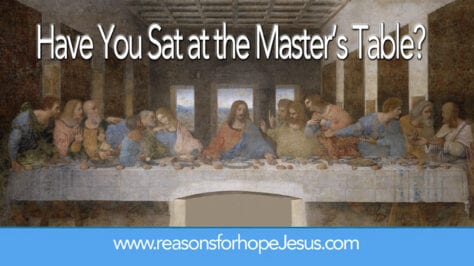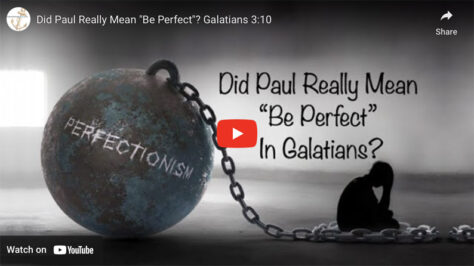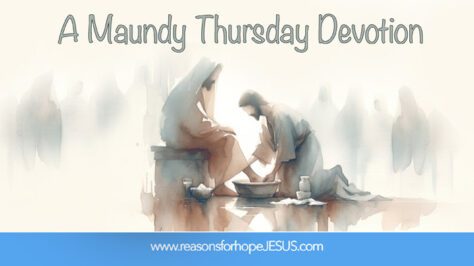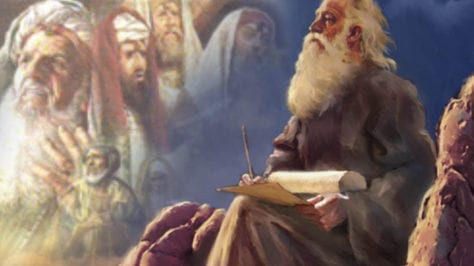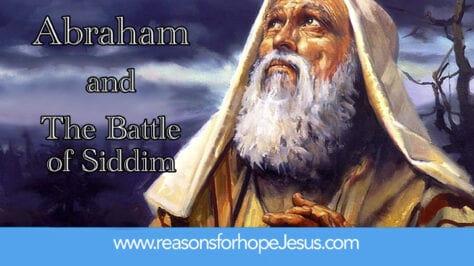
We’re studying the life and faith of Abraham. If you missed earlier lessons, they are listed at the end of this lesson.
Genesis 14:1-3
1 And it came to pass in the days of Amraphel king of Shinar, Arioch king of Ellasar, Chedorlaomer king of Elam, and Tidal king of nations; 2 That these made war with Bera king of Sodom, and with Birsha king of Gomorrah, Shinab king of Admah, and Shemeber king of Zeboiim, and the king of Bela, which is Zoar. 3 All these were joined together in the vale of Siddim, which is the salt sea.
Genesis 14: 4-7
4 Twelve years they served Chedorlaomer, and in the thirteenth year, they rebelled. 5 And in the fourteenth year came Chedorlaomer, and the kings that were with him, and smote the Rephaims in Ashteroth Karnaim, and the Zuzims in Ham, and the Emins in Shaveh Kiriathaim, 6 and the Horites in their mount Seir, unto Elparan, which is by the wilderness. 7 And they returned, and came to Enmishpat, which is Kadesh, and smote all the country of the Amalekites, and also the Amorites, that dwelt in Hazezontamar.
Genesis 14: 8-12
8 And there went out the king of Sodom, and the king of Gomorrah, and the king of Admah, and the king of Zeboiim, and the king of Bela (the same is Zoar;). And they joined battle with them in the vale of Siddim; 9 With Chedorlaomer the king of Elam, and with Tidal king of nations, and Amraphel king of Shinar, and Arioch king of Ellasar; four kings with five. 10 And the vale of Siddim was full of slimepits. And the kings of Sodom and Gomorrah fled, and fell there; and they that remained fled to the mountain. 11 And they took all the goods of Sodom and Gomorrah, and all their victuals, and went their way. 12 And they took Lot, Abram’s brother’s son, who dwelt in Sodom, and his goods, and departed.
Ancient Kingdoms
Two thousand years ago, most kingdoms were city-states (cities wherein the occupants pulled together, built defenses, and created a militia-type army for protection). On occasion, these city-state kingdoms would form alliances with other similar kingdoms and attempt to seize lands that might extend their borders, thereby adding important natural resources. The armies of these kingdoms were usually no more than a few hundred men. Only rarely would armies number in the thousands.
Four Kings Alliance
A few years after Lot and Abram had separated, four kings formed an alliance. The Bible often uses the term “confederacy” for these loose alliances. Confederacy signifies that their joining together was temporary. It was for a unique purpose and was not a merger of multiple kingdoms under a single king.
In this particular alliance, three of the four kings were from cities in Babylon, which is modern-day Iraq: Shinar, Ellasar, and Goiim (means “nations”). The fourth king was from the city of Elam, a large city in Persia, which is modern-day Iran. The temporary purpose of this alliance was to raid nearby cities, seize their possessions, and take their peoples into captivity as slaves. It’s likely they had determined a way to divide up the spoils of their raids before they went to war.
These four kings were the aggressors and they were ruthless. The most powerful and influential leader of the four kings was Chederlaomer, the King of Elam (Persia/Iraq). History tells us that these four aggressor kings swept across the middle-east and sacked many cities in their wake.
In the Valley of Siddim
Chapter 14 picks up the historical events as these four kings set their sights on battling with five cities in the region known as the valley of Siddim. We know this as the valley of the Salt Sea, or the valley of the Dead Sea. Two of the five cities were Sodom and Gomorrah.
The kings of these five cities formed their own confederacy to defend themselves. But even though it was five cities against four, they proved no match. In a short time, the cities of Sodom and Gomorrah both fell. The five kings and their respective armies found themselves fleeing from the four kings. And as they fled, the four kings pillaged the cities, raped the women, and carried off many people to a life of slavery.
This was the way of life in ancient times. When a city came under the threat of attack, it could choose to pay a “ransom” to the invaders and be spared going to war. Or the city could choose to refuse the ransom and meet the invaders on the battlefield. But if the war was lost, the king and people of the city lost everything and became slaves to the conquerors. History tells that the stakes were so high that it was common to decide to avoid war and pay the ransom.
For 13 years, the five kings must have paid the ransom to live in peace. But apparently in the 14th year, they decided to go to war. And when the four kings conquered the five kings, the cities fell.
Lot Captured
Among the spoils that the four kings seized was Lot, all his possessions, and his family. Important to remember is that Lot had taken up residence in Sodom, thinking he could “stay separate” from the wickedness in the city. However, man cannot live among the wicked and ungodly and still stay separate from such influences. If one walks in filth, one will get filthy. The Bible says, “Choose your friends wisely” (Prov 13:20) and it gives this counsel for good reason.
Let’s now consider how Abram responded to the capture of his nephew and the idea that his nephew would be a slave in a foreign land that did not know his God.
Genesis 14:13-16
And there came one that had escaped, and told Abram the Hebrew; for he dwelt in the plain of Mamre the Amorite, brother of Eshcol, and brother of Aner: and these were confederate with Abram. 14 And when Abram heard that his brother was taken captive, he armed his trained servants, born in his own house, three hundred and eighteen, and pursued them unto Dan. 15 And he divided himself against them, he and his servants, by night, and smote them, and pursued them unto Hobah, which is on the left hand of Damascus. 16 And he brought back all the goods, and also brought again his brother Lot, and his goods, and the women also, and the people.
We suppose that Abram and his confederacy, which numbered 318, was a much smaller force than that of the four kings (although the Bible does not tell this). In spite of only having 318 men with him, Abram smote the four kings. In doing so, he saved Lot, his goods, the women, and all the people. Abram’s victory was a gift from God. Vastly outnumbered, Abram fought on faith and God rewarded his faith with victory.
To the Victor Go the Spoils
As the victor, Abram was entitled to share in the spoils with the Amorites. In fact, as the leader and chief strategist, he was likely entitled to the “lion’s share.” But Abram knew that the victory was God’s. So Abram rejected his share of the spoils from the four kings and asked only for that which had been unjustly seized from the five cities when the kings had conquered and pillaged then.
This indicates that Abram was not looking to gain anything. Abram returned all that he received to Sodom. He did not want to use what God had done for him to gain personal reward. In faith, Abram desired to be a servant to do the will of God, not a king who would profit from something God had done.
+++
The Life and Faith of Abraham
- Timeline of the Life of Abraham
- A Story of Relationship
- From Haran to Canaan
- Abraham and Lot
- The Battle of Siddim
- Abraham and Melchizedek
- Righteousness Through Faith
- Cutting the Covenant
- Hagar and Ishmael
- A New Name for A New Man
- Circumcision: the Sign of the Covenant Read also: Why Circumcision?
- Sarah — A New Name for a New Woman
- The Lord Appeared to Abraham at The Oaks of Mamre
- Abraham Pleaded for Mercy for Sodom and Gomorrah
- The Rescue of Lot Out of Sodom
- Lot and His Daughters
- The Birth of Isaac, the Son of the Promise
- The Akedah: God’s Testing of Abraham’s Faith and Obedience
- ISAAC: A Whisper of Jesus in Genesis 22
- The Death of Sarah and A Bride for Isaac
- Jacob and Esau - Great Life Lessons + the Pattern of the Second Born
- Isaac’s Blessing on Jacob: Genesis 27
- Jacob’s Ladder and His Wrestling Match — Genesis 27, 32
*******
Jesus is the Reason this Ministry Exists
At Reasons for Hope* Jesus, we are committed to equipping, encouraging, and empowering Christians to know Jesus better, love Him more, and share their faith. We also reach the lost through our Salvation Page.
With your support, we can continue to provide valuable resources and engaging content. Please join us in our mission by donating today. Your generous contribution helps us expand our outreach of sharing biblical truths and hope in Jesus. Thank you for your kindness and for being an integral part of our mission.
*******
*******
***A Hidden Message in Psalm 23?***
Hidden in the six verses of Psalm 23 are 11 names for Jesus. When you subscribe to our newsletter, we’ll send you The Names of God in Psalm 23 PDF that reveals all 11 names and Scripture verses of comfort and hope (link will be sent in your confirmation email).
 A Room with a View of Eternity—The Last Will & Testament of Jesus Christ Take a seat at the Master's table. Learn about the riches He gives to all who are His. This book will bless and encourage you, give you hope, and help you live in the joy of your salvation and the riches of Christ that are yours.
A Room with a View of Eternity—The Last Will & Testament of Jesus Christ Take a seat at the Master's table. Learn about the riches He gives to all who are His. This book will bless and encourage you, give you hope, and help you live in the joy of your salvation and the riches of Christ that are yours.

The Top Ten Got Questions? in 2023
- The Meaning of NUMBERS in the Bible?
- Was Jesus CRUCIFIED on Wednesday, Thursday, or Friday?
- How was Jesus Like a Worm? What’s the CRIMSON (OR SCARLET) WORM in Psalm 22?
- How are the Shepherd’s ROD and STAFF Different?
- How long did JOB SUFFER?
- What is the Significance of the Wise Men's THREE GIFTS? And were they kings?
- Did The Wise Men Arrive 12 DAYS AFTER JESUS’ BIRTH? Or Was It Much Later?
- Jesus’ Last Days TIMELINE: the Cross and the Resurrection
- The Meaning of COLORS in the Bible?
- Did Jesus Fight Satan to Take Back the KEYS of Death and Hell?
There is much to be learned from those who have gone before us in the faith. Check out our Cloud of Witnesses category that features the words of departed saints who are now with the Lord in glory. Their words equip and encourage us even to this day. Take a few minutes to hear...
- ONLY ONE LIFE, Twill Soon Be Past – by C.T. Studd (1860 – 1931)
- “The Love of God is Greater Far” by Frederick M. Lehman (1917)
- Prayers from Billy Graham
- Who Was Robert Robinson? What’s the Story Behind “Come Thou Fount”
- “Immanuel” — A Poem by Charles Spurgeon (1834-1892)
- Who Am I? A Poem by Deitrich Bonhoeffer (1905-1945)
- Understanding the Everlasting Arms of God, by J.R. Miller (1840–1912)
- 24 Reasons Why I Love America, by John Wayne (1907-1979)
- Give Me Perpetual Broken-heartedness (from The Valley of Vision)
- Abide with Me, by James Smith, 1859
This remains one of our most popular pages viewed.![]()

TOP TEN Videos from Reasons for Hope* Jesus
- Memorial Day BAGPIPES TRIBUTE: Amazing Grace
- RISE AND SHINE and Give God the Glory, Glory!
- WERE YOU THERE When They Crucified My Lord?
- PAUL HARVEY: THE BIRDCAGE
- PRESIDENT RONALD REAGAN: A SOLDIER'S PLEDGE
- Hark! the Herald Angels Sing -- CHARLIE BROWN Christmas
- JOHN WAYNE ~ WHY I LOVE AMERICA
- Jimmy Stewart - Nativity Scene Prayer: Mr. Krueger's Christmas
- THE LEGEND OF THE CANDY CANE - A Christmas Story to Share
- Not by Might, Not by Power, But BY MY SPIRIT says the Lord (Zechariah 4:6)
*****************







